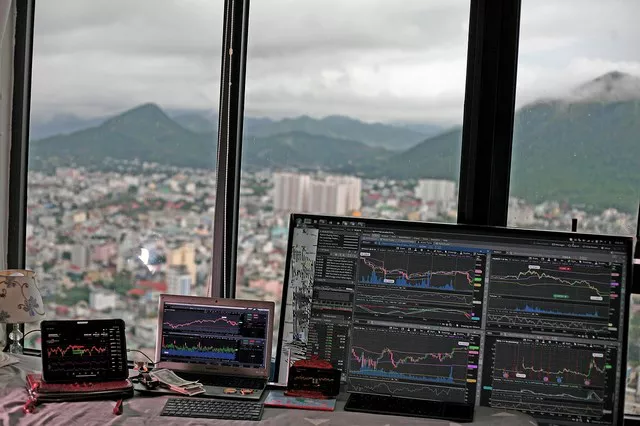Electricity futures represent financial contracts that allow market participants to buy or sell electricity at a predetermined price for delivery at a specified future date. These futures contracts enable electricity producers, consumers, traders, and investors to manage price risk, hedge against fluctuations in electricity prices, and speculate on future price movements in the electricity market. In this comprehensive guide, we will delve into the intricacies of electricity futures trading, exploring how these contracts work, their role in energy markets, and the potential opportunities they offer for investors.
Understanding Electricity Futures Contracts
Electricity futures contracts are standardized agreements traded on futures exchanges, where buyers and sellers come together to establish prices for electricity delivery at future dates. These contracts specify the quantity of electricity, delivery location, delivery period, and price per unit of electricity. Electricity futures contracts are typically denominated in megawatt-hours (MWh) and are traded in various marketplaces around the world, including commodity exchanges and over-the-counter (OTC) markets.
Key Features of Electricity Futures
Electricity futures contracts share several key features with other futures contracts:
Standardization: Electricity futures contracts are standardized to facilitate trading and ensure liquidity. Standardization includes specifications for delivery terms, contract size, delivery locations, and trading hours.
Delivery Periods: Electricity futures contracts may have different delivery periods, including day-ahead, week-ahead, month-ahead, and even longer-term contracts. These contracts allow market participants to hedge against price risk and manage electricity consumption or production over specific timeframes.
Settlement Methods: Electricity futures contracts can be settled through physical delivery or cash settlement. Physical delivery involves the actual delivery of electricity to the buyer’s designated delivery point, while cash settlement is based on the difference between the contract price and the prevailing market price at expiration.
Liquidity and Trading Volume: Electricity futures markets vary in terms of liquidity and trading volume, depending on factors such as market maturity, regulatory environment, and regional demand for electricity. Liquid markets provide ample trading opportunities and tight bid-ask spreads, facilitating efficient price discovery and execution of trades.
Role of Electricity Futures in Energy Markets
Electricity futures play a vital role in energy markets by providing a mechanism for price discovery, risk management, and investment:
Price Discovery: Electricity futures markets serve as a benchmark for electricity prices, reflecting supply and demand dynamics, fuel costs, transmission constraints, weather patterns, and other factors influencing electricity markets. Prices established in electricity futures markets provide valuable information to market participants, policymakers, and regulators.
Risk Management: Electricity futures contracts enable electricity producers, consumers, and traders to hedge against price risk and protect against adverse price movements. Producers can lock in prices for future electricity sales, while consumers can secure predictable costs for electricity consumption, reducing uncertainty and safeguarding profitability.
Investment Opportunities: Electricity futures offer opportunities for investors to speculate on future electricity prices and capitalize on market trends. Investors can take long or short positions in electricity futures contracts based on their outlook for electricity prices, market fundamentals, and macroeconomic factors.
Factors Affecting Electricity Futures Prices
Several factors influence electricity futures prices, including:
Supply and Demand Dynamics: Electricity futures prices are influenced by supply and demand fundamentals, including generation capacity, fuel availability, transmission infrastructure, demand growth, and seasonal variations in electricity consumption.
Fuel Prices: The prices of fuel commodities such as natural gas, coal, and oil have a significant impact on electricity production costs and, consequently, electricity futures prices. Changes in fuel prices can affect the competitiveness of different generation technologies and influence electricity market dynamics.
Weather Patterns: Weather conditions, including temperature extremes, precipitation levels, and seasonal patterns, can affect electricity demand for heating, cooling, and other purposes. Weather forecasts and outlooks play a crucial role in electricity futures trading, as they can impact electricity consumption and generation patterns.
Regulatory Environment: Electricity markets are subject to regulatory oversight, including rules governing market structure, competition, pricing mechanisms, and environmental policies. Regulatory changes, market reforms, and policy developments can influence electricity futures prices and market dynamics.
Conclusion
In conclusion, electricity futures represent a valuable tool for participants in energy markets, offering opportunities for price discovery, risk management, and investment. These standardized contracts enable market participants to hedge against price risk, speculate on future price movements, and capitalize on market trends in electricity markets. By understanding the intricacies of electricity futures contracts, staying informed about market fundamentals, and employing sound risk management strategies, investors can navigate the complexities of electricity futures trading and pursue their investment objectives effectively. Whether seeking to hedge against price volatility, manage electricity consumption or production, or capitalize on opportunities in energy markets, electricity futures offer a range of possibilities for investors, producers, consumers, and traders alike.


